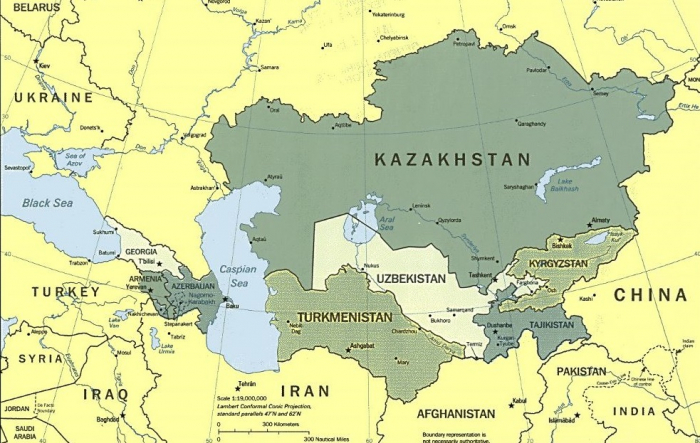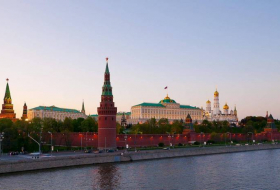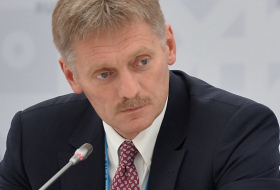The decreased globalisation has transformed regional processes. In this regard, the trilateral economic cooperation between Azerbaijan, the leader of the South Caucasus, and the two leading countries of Central Asia - Kazakhstan and Uzbekistan - is of great interest, Economist-expert Khalid Karimli told AzVision.az while commenting on the prospects of Azerbaijan-Kazakhstan-Uzbekistan trilateral economic integration.
- How would you evaluate the trilateral Azerbaijan-Turkiye-Kazakhstan declaration signed in logistics and communications fields?
- The main issue that attracted attention in the recent discussions of the Ministers of Foreign Affairs and Transport and Communication of Azerbaijan, Kazakhstan and Turkiye is getting more benefits from the international conditions in the current period. The sides have taken measures towards the implementation of the Middle Corridor project for the transportation of goods from China to Europe and vice versa for a long time now. There were also trials of the project. Azerbaijan actively participated in the process. All the sides are interested in making the corridor active and business-like. However, there are certain challenges.
All three countries are interested in defining alternative routes to transport goods from China to Europe by rail passing through Kazakhstan, Transcaspian and Azerbaijan by rail and sea. However, before the pandemic, as the priority was on the sea and maritime transport, it was somewhat difficult to divert cargo flows from traditional routes in this direction. The reason was that business structures did not want to participate in this process. However, the restrictions that appeared during the pandemic, and then the problems that arose in the routes of the traditional land-based flow of cargo in the background of the Russian-Ukrainian war, revealed the need to put serious attention on this direction.
The main issue that draws attention is that the relevant structures of these countries meet and hold discussions from time to time to lower the cost of these freight flows that will pass through the territory of many countries, determine preferential tariffs, and form interesting conditions for the value chain of freight transportation between countries. Serious measures are currently being taken in this direction, and the priority is on increasing the role of Trans-Caspian freight transport.
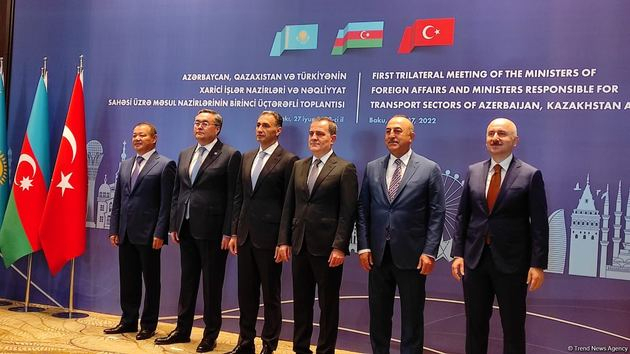
- Is the volume of Azerbaijan’s trade and economic relations with Uzbekistan, which has the most significant human capital in the Central Asian region, compatible with the current potential? What new opportunities do the agreements signed within the framework of the last visit of the Azerbaijani president to Uzbekistan open up?
- Currently, trade and economic relations between Azerbaijan and Uzbekistan are many times lower than the countries' potential. This can be felt in the statements made by the leaders of the country at the last meeting. Of course, these two countries, which are strategic partners, want to increase economic and trade relations. Establishing joint enterprises, increasing inter-enterprise cooperation, exchanging experiences in the fields where countries excel, creating a joint fund and implementing joint investment projects are important steps that will be taken in this direction and will boost the economic, commercial and financial cooperation of the countries. The current numbers are small in terms of the potential of the two countries, and both countries are interested in increasing it tenfold soon.
In particular, Uzbekistan's desire to reach Europe, the Black Sea, and Turkiye via Azerbaijan's railway lines and land transport routes heralds the expansion of the future activities of these two countries.
Uzbekistan is eager to take part in the Trans-Caspian projects by passing through Kazakhstan. To expand Azerbaijan-Uzbekistan economic and trade relations, the fact that the two countries are interested in joint activities in this direction, the creation of commissions for carrying out specific works, the signing of protocols on the organization of joint enterprises, and the announcement of intentions allow us to say that the countries will expand their economic and trade relations shortly.
- Is it possible for Uzbekistan, which does not have direct access to the Caspian Sea, to participate in what projects can be realized in the Caspian Sea through Azerbaijan and Kazakhstan? In general, the economic integration of these three countries is interesting from what perspective?
- Uzbekistan is one of the countries which is ambitious to participate in the Trans-Caspian projects. Trans-Caspian aims to export its products to Europe and Turkiye through the Middle Corridor projects, and vice versa, and to import the goods through this transport corridor. The steps taken in this direction are in line with the strategic interests of Azerbaijan, Kazakhstan, and Turkiye.In this regard, the construction of the Baku-Tbilisi-Kars railway project, which Azerbaijan has invested in it for a long time, and the construction of the Zangezur corridor, which is currently being intensively built and will later extend to Turkiye, allows us to say that shortly, the general agreement reached for cross-country multi-modal transportation and transportation across the Caspian Sea will lead to an increase in the volume of cargo flow in these directions. As a result, Uzbekistan will have the opportunity to easily sell its products to Europe via these channels.
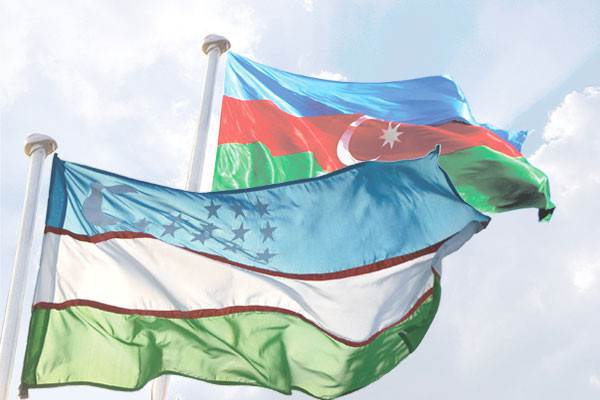
- What does the above-mentioned Azerbaijan-Turkiye-Kazakhstan trilateral logistics and communication cooperation project promise Uzbekistan?
- Uzbekistan does not have a direct connection with the Caspian Sea, but crossing the Caspian Sea through Kazakhstan can reach Turkiye and Europe through Azerbaijan. At the moment, the process of increasing the share of Trans-Caspian cargo transportation and the number of transportations by traditional ferry and determining preferential tariffs in the Middle Corridor project is underway. Azerbaijan wants to strengthen its role in the export of products to Europe through Turkiye via the Baku-Tbilisi-Kars railway line and to boost the volume of cargo transportation in the direction of trade with Ukraine, Romania and Turkiye through the ports of Poti and Batumi in Georgia. The project, which is being implemented by passing over Zangazur, is considered an alternative route. Also, the project connecting Azerbaijan to Nakhchivan by passing over Zangazur provides for Armenia’s possible involvement in the processes, as well as the planned connection with the Kars railway passing through Nakhchivan, is focused on. Uzbekistan is also keen on joining the Azerbaijan-Kazakhstan-Turkiye cooperation on transport and cargo transportation. In recent years, Uzbekistan has been experiencing serious economic development. Uzbekistan’s access to the world economy has led to a sharp increase in the country’s import and export transactions. By closely cooperating with international organizations, Uzbekistan has managed to attract large financial resources to the country. Participating in the establishment of alternative and reliable communications and transportation links is among the priorities of the Uzbek state.
- Azerbaijan has already started to act as a capital exporter. Is it possible for Azerbaijan, Kazakhstan and Uzbekistan to launch joint projects in this field?
- Azerbaijan’s largest investments fall on Turkiye. Azerbaijan has largely invested in Turkiye’s oil, gas and petrochemical industries. At the same time, Azerbaijan has large investments in Georgia. Here the main issue is that these countries are particularly important partners for Azerbaijan, as well as the continuation of the activities of the country's companies in this direction and the creation of a synergy effect. In this regard, Azerbaijan’s possible investment in Kazakhstan and Uzbekistan is among the issues on the agenda. In particular, the rapid development of ties between these three countries, the strengthening of cooperation on various platforms and the identification of their views towards the future, as well as the same goals, allow Azerbaijan to make large investments in these countries soon.
The joint Fund established under the Organization of Turkic States is intended for organizing a single fund for the financing of investment in directions that meet the common interests of the Central Asian countries, Azerbaijan and Turkiye, which are members of this organization and will serve as joint strategic goals. Azerbaijan is also interested in setting up joint cooperative enterprises with Uzbekistan.
In addition, joint financing of various Trans-Caspian projects with Kazakhstan, and Azerbaijan’s possible renting land outside the country for farming to ensure food security is possible issues Kazakhstan and Azerbaijan can cooperate on and implement joint projects. These factors will lead to the active involvement of all three countries in global trade, the expansion of joint transport and communications links and trade growth. The joint activity of the three countries is quite a matter of reality, and I am sure that we will soon witness the joint financing and joint construction of various Trans-Caspian projects.
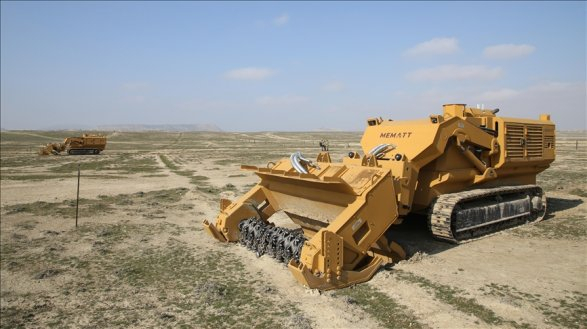
- What role can Kazakh and Uzbek companies play in the restoration of the liberated Azerbaijani territories?
- To accelerate the restoration of its liberated territories, Azerbaijan has created favourable conditions for the involvement of friendly countries, especially the brotherly countries that supported Baku’s just cause on various platforms during the war. The biggest example of this is the active role of Turkish companies in the process of land restoration. Azerbaijan left its doors open for the participation of Kazakhstan and Uzbekistan in the process as well.
Azerbaijan pays special attention to the creation of preferential conditions and technological industrial parks for companies operating in these zones. This is especially the technological and Aghdam industrial-technological parks intended for the transportation and logistics opportunities created in the Arazboyu valley. Also, the creation of production enterprises mainly in the field of the non-oil industry is planned. The doors are open for countries and their companies willing to join this process. Over the past two years, Azerbaijan has invested billions of manats from the state budget for the reconstruction of Karabakh. In parallel, private companies are actively involved in the restoration of these areas. Of course, this work will continue. There is a need to make investments, to create many areas from scratch. From this point of view, the participation of Kazakh companies and businesses, which have great opportunities and resources, as well as Uzbek companies that have embarked on the path of serious development, in the reconstruction of Karabakh, and investing in the economy of Azerbaijan is, of course, interesting for us.
The Azerbaijani state always tries to attract foreign direct investments to the country. If the source of this is friendly and brotherly states, then it is doubly interesting for our country. In particular, the creation of joint ventures with these countries, and coordination of joint activities is one the important areas of activity. At the moment, the private companies' active role is somewhat limited, as the territories are cleared of mines and initial investments are made. However, after ensuring the security of activity and free movement in the area, foreign companies will be called on to invest more intensively. Of course, our country intends to make possible concessions in the process of the initial establishment of East Zangazur and Karabakh. There are proposals in this direction, and work is being done to grant new concessions.
More about:








